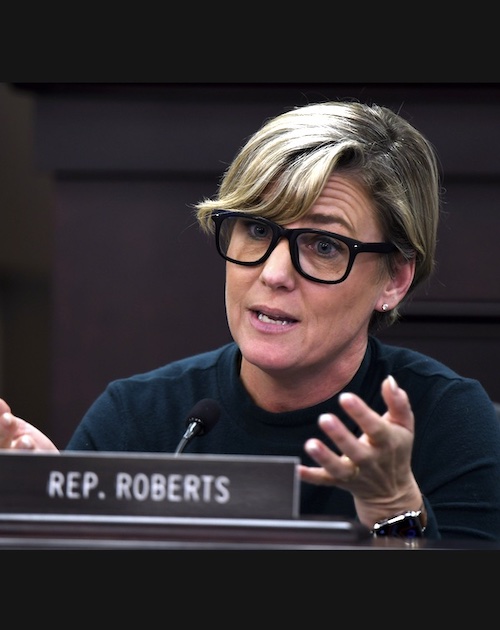Oct. 27, 2023
Ky. Legislators hear about challenges facing small business owners; need for immigrant workers?
FRANKFORT — Lawmakers heard from national and state business advocates Thursday about the challenge of workforce shortages and the role of immigration in Kentucky’s economy.
Charles Aull, executive director of the Kentucky Chamber Center for Policy and Research, testified that 80% of Kentucky’s employers say there isn’t an ample supply of workers in their perspective areas, but 79% of them expect to still be in the state 10 years from now.
His comments were part of a presentation to the Interim Joint Committee on Tourism, Small Business, and Information Technology.
In addition to Aull, John Cox, director of public affairs for the Kentucky Chamber of Commerce, and Tom Sullivan, vice president of small business policy for the U.S. Chamber of Commerce, testified about the current business climate.
“We asked them (small business owners) what they thought state policy makers in particular should be most focused on. A pretty resounding response was an emphasis on workforce, and you all have done great work in this area,” Aull said. “I think a good way to interpret this is to understand the need for just continued pressure on the issue of workforce development.”
According to his presentation, 64% of employers reported trouble finding skilled workers, and 36% reported trouble finding non-skilled workers. Around 79% of employers have increased wages to retain employees. At the same time, 51% said state government is doing an excellent or good job creating a strong business climate.
Cox said the legislators’ supportive stances are appreciated.
“We just want to thank you all for your continued work to support small businesses across the state by backing important measures to support workforce development, reduce or streamline government regulations and improve our tax code. You’re actively making Kentucky a better place and a more competitive environment for small businesses,” he said.
Senate Minority Caucus Chair Reginald Thomas, D-Lexington, said access to capital for small businesses is vital, and he asked about ways to get important information out to the public.
Sullivan said peer-to-peer learning through business associations is a good way to get the word out, but chambers of commerce use any way possible to disseminate information about available loans and challenges to obtaining them, ways to deal with inflation, and a plethora of other topics.
House Minority Whip Rachel Roberts, D-Newport, expressed concern about the cost of joining some chambers of commerce and closures of small businesses.
“So I own a small business, and one of my biggest challenges…is that so many small businesses can’t actually access their chambers because the price point for a small business to enter the chamber can be really cumbersome. In my region, it’s almost $400 for any business to join the chamber, even if that’s a sole proprietor business,” she said.
Sen. Phillip Wheeler, R-Pikeville, asked about the outsourcing of jobs, border security, immigration and patriotism.
Sullivan said his organization is doubling down on the need for additional “legal workers” in the United States, combined with additional border protections that allow for the economy to grow responsibly.
“We are now actually committed to not only have immigration reform that brings in workers that will help our economy grow, we also are committed to making sure that we have border security. We believe that those things go hand in hand. They are not separate and distinct issues and priorities that have to work against each other,” he said.
Rep. Phillip Pratt, R-Georgetown, co-chair of the committee and president and owner of a lawn and landscaping business in Georgetown, asked Sullivan to comment on the H-2B program for guest workers.
“This program is a political football in D.C. They cap it, they uncap it, then they uncap it again,” Pratt said. “What can we do to straighten this program out? These are the guys that actually pay all the taxes, and if they have committed a crime in Mexico or in the United States – a misdemeanor – they cannot come across the border.”
Sullivan said this is a perfect example of the need for certainty for small businesses to flourish. He pointed out the program operates through a lottery system, and chambers of commerce need to work with federal partners to improve the situation.
“It does not add to certainty when a small business owner has to gamble on whether or not they’re going to have enough workers to meet what they would like to see as demand for increased revenues and growth in their business and growth in their community,” he said.













![Foothills-Bundle] Foothills-Bundle](https://thelevisalazer.com/wp-content/uploads/2020/05/Foothills-Bundle-422x74.jpg)





